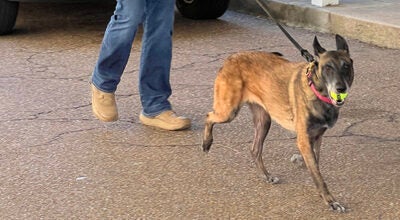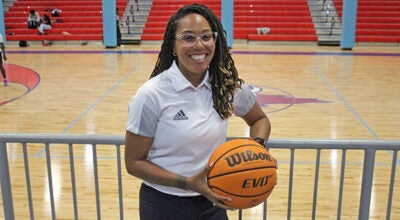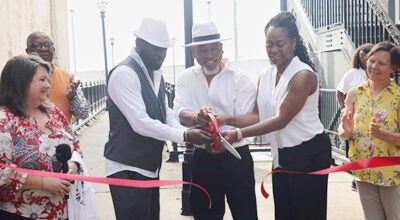Pigs-in-Flight museum about learning
Published 9:37 am Wednesday, April 15, 2015
When Wanda Newell opened Pigs-in-Flight, her children’s museum on Belmont Street, she did it with one idea in mind — to help educate the children who visit it and their parents.
“The museum is all about learning,” she told Vicksburg Kiwanis Club members. “It’s about learning individually, it’s about learning collectively with that person who loves you, and it’s about experiencing success.
“Every child in this world, regardless of race, age or academic ability needs one person in their life who loves them unconditionally and will let them know that they are important and they can be successful,” she said. “That’s why with things in my museum you have to have an adult there with you. You have an adult there with you sharing it.”
She said most teachers and younger mothers are used to taking their children places where the place entertains.
“But when you come into my museum, the kids eventually say, ‘Mama, mama, come here,’ because the museum is designed for adult-child interaction,” she said. “And what happens is, parents get to learn (about) their children at a different level and the children get to see what they’re successful at. Their parents get to say right then, ‘Boy did you do a good job. I didn’t know you could do this.’”
Newell, who is associate professor of child development in the Department of Human Sciences at Alcorn State University, said she got the idea for the museum 15 years ago and would talk to her friends about her vision.
When she planned her museum, Newell said, “What I wanted to do was to take all the knowledge and understanding that families and children have taught me over the years and professionally what I have learned about how children actually learn.”
The museum’s exhibits and activities, she said, are based on theories and practices that are proven to have successful outcomes for children.
The museum incorporates programs such as pretend play, the Montessori practice of using objects and connecting them with children’s senses.
“So there are things in my museum that our children just pretend play with, there are things in our museum that are real, and they get to touch it, they get to smell it, they get to taste it. They get to do all of those things.”
She also incorporates the learning process developed in the Italian city of Reggio Emilia, which makes parents and teachers stakeholders in the child’s education.
“They are interested in their children learning how to think,” she said. “It’s not enough to pretend play, it’s not enough to become intimate with an object. You have to begin to explore it, observe it and assign language. Until we can observe it, explore it and assign language, we can’t begin to really think about it analytically.”
At the museum she said, children are given things to do and talk about; to assign a language to.
“We want them to observe it,” she said.
“We have a coal mine. We want them to go into that coal mine and pick up that coal and we have charcoal in there. When they pick up that charcoal, their hands are black, and we talk to them about coal and we assign a language to that. And the kids really love it.”
The museum has 16 different types of exhibits and a revolving exhibit that change every 3 to 4 months. In October, she said, she will change complete museum.
Children, she said, tell their parents about the museum when they go home, adding, “I have parents call me or come by and say, I had to come by and see the place.”
And when children and parents come to the museum together, “Bonding takes place.”
“Children today know what they do well and they also need to experience it in a non-threatening environment,” Newell said. “I can make mistake and learn from it. I’m excited when children give me the wrong answer, because I can get in their heads and ask them “why did you say that?
“I can begin to understand them and begin to direct them in a way in which they will come up with the right answer and they fee so good about themselves. I feel so good about this place. Making a connection with someone who’s learning is a lifelong pleasure for that person.”






